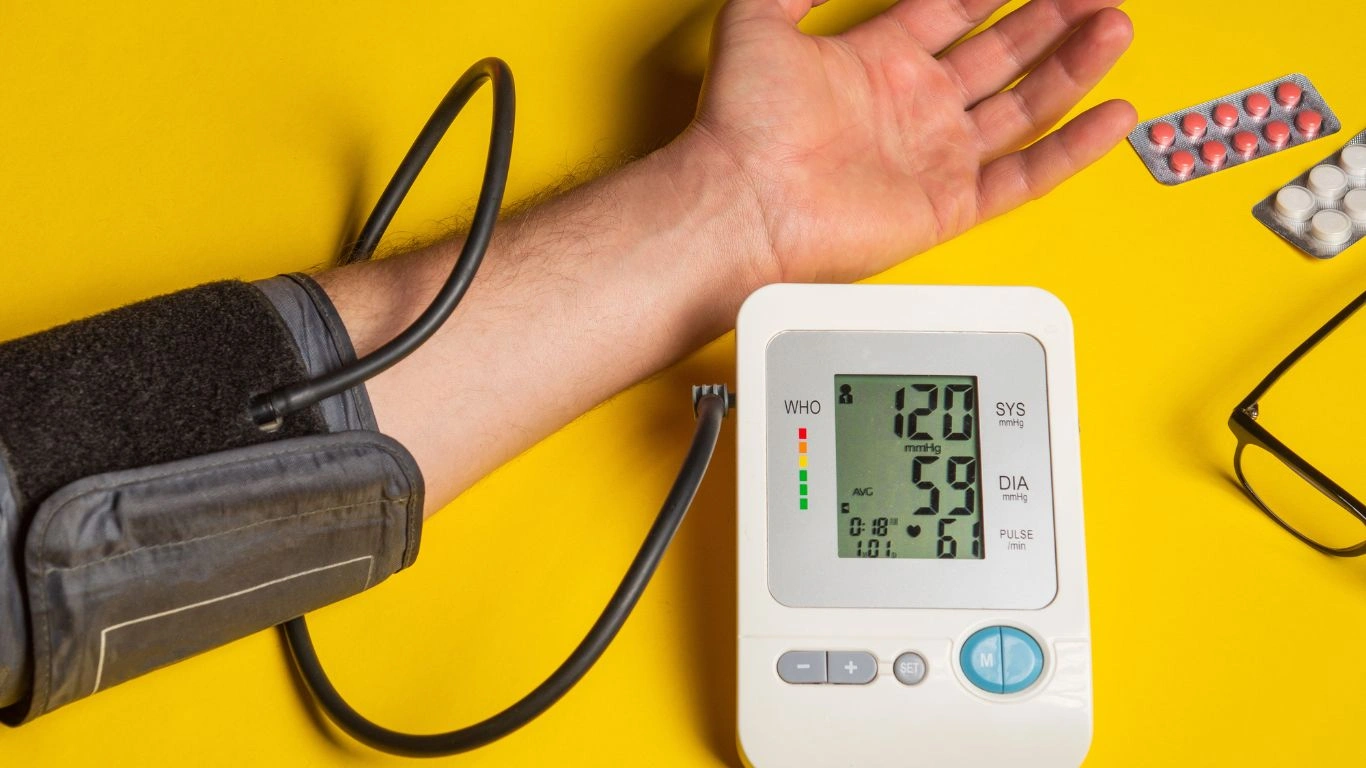Turmeric for Hypertension: A Natural Remedy That Lowers Blood Pressure?
When it comes to managing high blood pressure, many people turn to natural remedies, and one that keeps popping up is turmeric. But what’s the real deal? Does this golden spice actually help with hypertension, or is it just another overhyped trend? As someone who has spent years specializing in hypertension, I’ve seen plenty of fads come and go. But turmeric? It’s worth a closer look. Let’s break it down.
What Makes Turmeric So Special?

Turmeric isn’t just for adding color to your curry. This vibrant yellow spice has been used in traditional medicine for centuries, particularly in Ayurveda and Chinese medicine. The secret behind its potential benefits? A powerful compound called curcumin. Research suggests that curcumin possesses anti-inflammatory, antioxidant, and even blood pressure-lowering properties.
But here’s the catch—curcumin doesn’t absorb well into the bloodstream on its own. That’s why you’ll often see turmeric supplements combined with black pepper (which contains piperine) to boost absorption. So, if you’re thinking of adding turmeric to your routine, make sure you’re getting the most out of it!
How Does Turmeric Affect Hypertension?

Now, let’s get to the important part—the effects of turmeric on hypertension. High blood pressure, or hypertension, is often called the “silent killer” because it doesn’t always come with noticeable symptoms. But over time, it can lead to serious complications like heart disease, stroke, and kidney damage.
1. Turmeric’s Role in Reducing Inflammation
Chronic inflammation is a major contributor to high blood pressure. When blood vessels become inflamed, they narrow, making it harder for blood to flow. This increases pressure on the heart and arteries. Curcumin, with its powerful anti-inflammatory effects, helps reduce this inflammation, potentially improving circulation and lowering blood pressure.
2. Enhancing Nitric Oxide Production
Nitric oxide is a natural compound in the body that helps blood vessels relax and widen. Studies suggest that curcumin enhances the production of nitric oxide, promoting better blood flow and reducing strain on the cardiovascular system. In other words, it may help your arteries function more efficiently.
3. Acting as a Natural Blood Thinner
Blood clotting is essential to prevent excessive bleeding, but when it happens too much, it can lead to serious issues like heart attacks and strokes. Curcumin has mild blood-thinning properties, which may support better circulation. However, if you’re on blood thinners, it’s important to consult your doctor before adding turmeric to your regimen.
How to Incorporate Turmeric Into Your Diet

Okay, so turmeric sounds promising—but how do you actually include it in your daily routine? Here are some simple ways:
- Golden Milk: Mix turmeric with warm milk (or a dairy-free alternative), a dash of black pepper, and a bit of honey.
- Add It to Your Meals: Sprinkle turmeric into soups, stir-fries, and roasted vegetables.
- Turmeric Tea: Steep fresh turmeric or turmeric powder with ginger and lemon for a soothing tea.
- Supplements: If you want a concentrated dose, turmeric capsules with black pepper extract can be an option.
But remember—moderation is key. Too much turmeric can cause digestive issues, and it may interact with certain medications. Always check with your doctor, especially if you’re on blood pressure meds.
Turmeric and Hypertension: What Does Science Say?

Whenever a natural remedy gains popularity, I always dig into the science before recommending it to my patients. So, what does research actually say about the effects of turmeric on hypertension? Let’s take a look at some of the most compelling findings.
1. Clinical Studies on Turmeric and Blood Pressure
A number of studies have explored turmeric’s impact on hypertension. One 2019 study published in the journal Phytotherapy Research found that participants who consumed curcumin supplements experienced a significant reduction in both systolic and diastolic blood pressure over a 12-week period. The researchers attributed this to curcumin’s ability to enhance nitric oxide production, which helps blood vessels relax.
Another study in the Journal of Clinical Hypertension found that individuals with metabolic syndrome—often associated with high blood pressure—saw improvements in their blood pressure readings after taking curcumin daily. However, the study also noted that these effects were most pronounced when curcumin was paired with piperine (found in black pepper) to improve absorption.
2. Can Turmeric Replace Blood Pressure Medication?
Let’s get one thing straight—while turmeric has some promising benefits, it shouldn’t be considered a replacement for prescribed hypertension medication. I’ve had patients ask if they can ditch their meds and rely solely on turmeric, and my answer is always the same: absolutely not. Managing high blood pressure is about a combination of lifestyle changes, medication (when necessary), and supportive natural remedies.
That being said, turmeric can be an excellent complement to a heart-healthy lifestyle. If you’re already on blood pressure medication, always consult your doctor before adding turmeric supplements, as it may interact with certain drugs, including blood thinners and ACE inhibitors.
Potential Risks and Side Effects of Turmeric

Turmeric is generally safe for most people when consumed in moderation. However, as with any supplement, there are potential side effects and risks to be aware of.
1. Digestive Issues
Some people experience stomach discomfort or bloating when consuming high doses of turmeric. This is especially true if you take it on an empty stomach or in supplement form without food.
2. Blood-Thinning Effects
Turmeric’s ability to thin the blood can be beneficial for circulation, but it’s a double-edged sword. If you’re on blood-thinning medications like warfarin or aspirin, taking high doses of turmeric could increase your risk of excessive bleeding.
3. Lower Blood Sugar Levels
Some studies suggest that curcumin may help regulate blood sugar levels, which is great news for those managing diabetes. However, if you’re already taking medications for blood sugar control, turmeric might enhance their effects too much, leading to low blood sugar (hypoglycemia).
4. Potential Liver Concerns
There have been rare cases of liver issues linked to high doses of turmeric supplements. While turmeric in food is completely safe, excessive supplementation—especially over long periods—could potentially strain the liver.
How to Maximize Turmeric’s Benefits Safely

If you’re looking to incorporate turmeric into your routine to support your blood pressure, here’s how to do it safely and effectively:
- Stick to Natural Sources: Instead of high-dose supplements, try adding turmeric to your meals. Golden milk, curries, soups, and smoothies are excellent ways to enjoy its benefits.
- Pair It with Black Pepper: Always combine turmeric with black pepper to enhance absorption. A dash of black pepper can increase curcumin absorption by up to 2,000%!
- Consult Your Doctor: If you’re on any medication, especially blood thinners or blood pressure drugs, check with your doctor before taking turmeric supplements.
- Don’t Overdo It: Moderation is key. A teaspoon of turmeric powder daily in food is generally safe, but if you’re considering supplements, follow dosage guidelines carefully.
At the end of the day, turmeric is a powerful natural remedy with promising benefits for hypertension, but it’s not a miracle cure. The best way to manage high blood pressure is a combination of a balanced diet, exercise, stress management, and, when needed, proper medical treatment. Turmeric can absolutely be part of that journey—just make sure you’re using it wisely.
Turmeric and Lifestyle: A Holistic Approach to Hypertension

By now, we’ve covered how the effects of turmeric on hypertension can be beneficial, but here’s the thing—no single food or supplement can magically fix high blood pressure. Over the years, I’ve seen the best results when people combine natural remedies like turmeric with an overall heart-healthy lifestyle. So, let’s talk about how you can integrate turmeric into a bigger plan for better blood pressure control.
1. Diet Matters More Than You Think
Turmeric is a great addition to your diet, but it works even better when paired with other nutrient-rich foods. The DASH diet (Dietary Approaches to Stop Hypertension) is one of the best ways to manage high blood pressure naturally. It emphasizes:
- Fruits and Vegetables: Rich in potassium and antioxidants, these help regulate blood pressure.
- Whole Grains: Brown rice, quinoa, and oats provide fiber, which supports heart health.
- Lean Proteins: Fish, chicken, tofu, and legumes offer protein without excessive saturated fats.
- Healthy Fats: Avocados, olive oil, and nuts are great for heart health.
Pairing turmeric with these foods enhances its benefits while creating a well-rounded diet to fight hypertension.
2. Exercise: The Ultimate Blood Pressure Regulator
Exercise plays a huge role in keeping hypertension under control. I always tell my patients, “If you can find just 30 minutes a day to move, your heart will thank you.” Regular physical activity helps blood vessels stay flexible, reducing resistance and making it easier for your heart to pump blood.
Here are some of the best activities to pair with a turmeric-rich diet:
- Brisk Walking: One of the simplest yet most effective ways to lower blood pressure.
- Strength Training: Builds muscle and helps improve insulin sensitivity, which can benefit blood pressure.
- Yoga and Meditation: Stress is a silent contributor to hypertension, and mindfulness practices can make a difference.
Turmeric Supplements vs. Fresh Turmeric: Which Is Better?

One of the most common questions I get is whether fresh turmeric is better than supplements. The answer? It depends on your lifestyle and needs.
1. Fresh Turmeric
If you enjoy cooking and want to incorporate turmeric naturally, fresh turmeric root is a fantastic option. You can:
- Grate it into soups and stews
- Add it to smoothies for a health boost
- Make fresh turmeric tea with ginger and lemon
However, the downside is that fresh turmeric contains lower concentrations of curcumin compared to supplements.
2. Turmeric Supplements
For those who need a more potent dose, turmeric supplements are a great alternative. They often contain curcumin extracts with added black pepper to improve absorption. But be careful—not all supplements are created equal. Always look for third-party tested brands and consult your doctor before starting any new supplement regimen.
Final Thoughts on Turmeric and Hypertension
After years of working with patients dealing with hypertension, I’ve learned that small, consistent changes lead to the best long-term results. Turmeric is an excellent addition to a heart-healthy lifestyle, but it’s not a cure-all. Pairing it with a balanced diet, regular exercise, stress management, and, when necessary, proper medication can truly make a difference.
If you’re thinking about adding turmeric to your routine, start small. Maybe a daily cup of turmeric tea or a sprinkle in your favorite dishes. Just remember—consistency is key. Your heart health is a lifelong journey, and every little step counts.
References
Disclaimer
This article is for informational purposes only and should not be considered medical advice. Always consult a healthcare professional before making any changes to your diet, supplement routine, or medication.

Dr. Gwenna Aazee is a board-certified Internal Medicine Physician with a special focus on hypertension management, chronic disease prevention, and patient education. With years of experience in both clinical practice and medical writing, she’s passionate about turning evidence-based medicine into accessible, actionable advice. Through her work at Healthusias.com, Dr. Aazee empowers readers to take charge of their health with confidence and clarity. Off the clock, she enjoys deep dives into nutrition research, long walks with her rescue pup, and simplifying medical jargon one article at a time.







